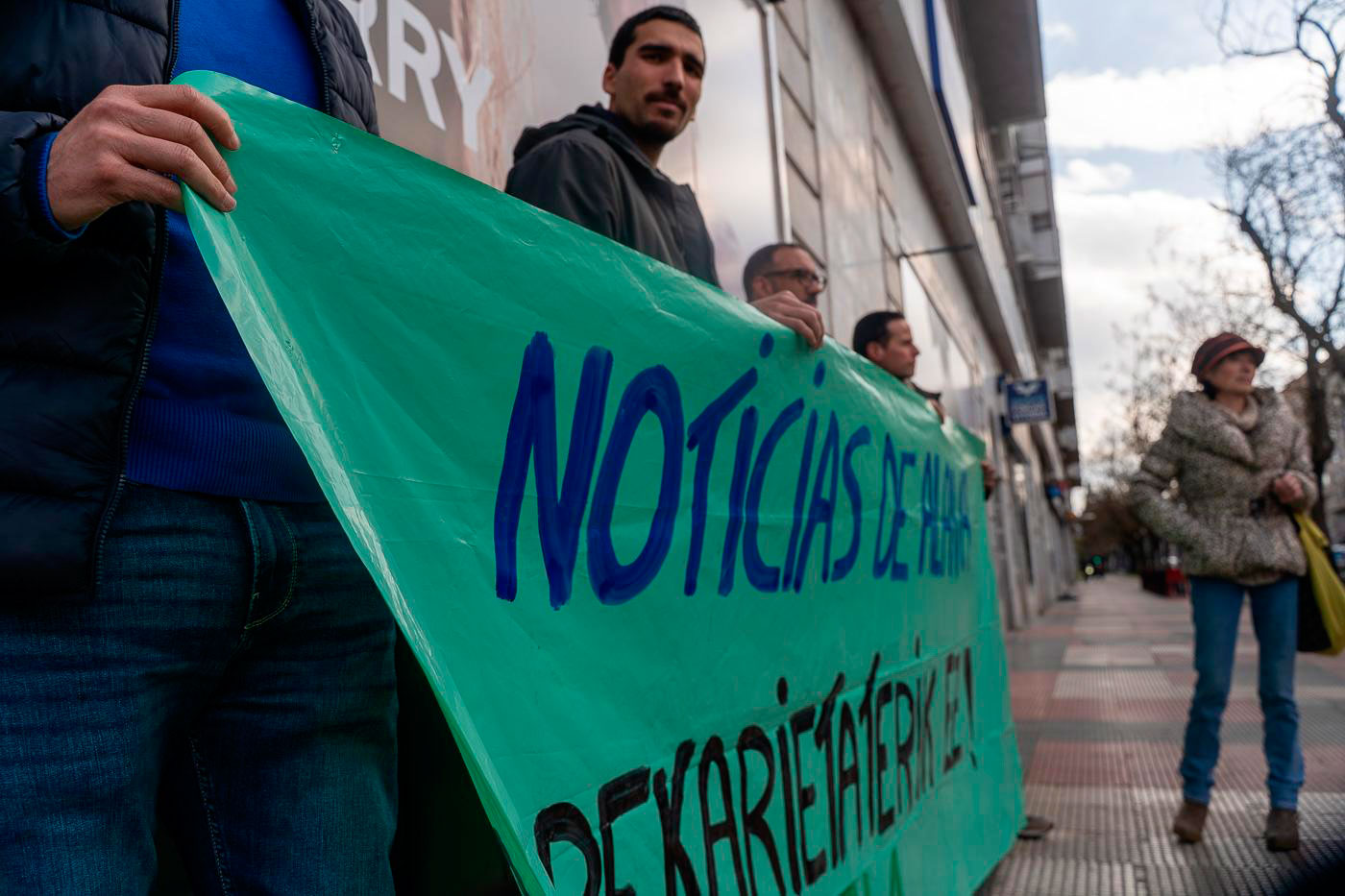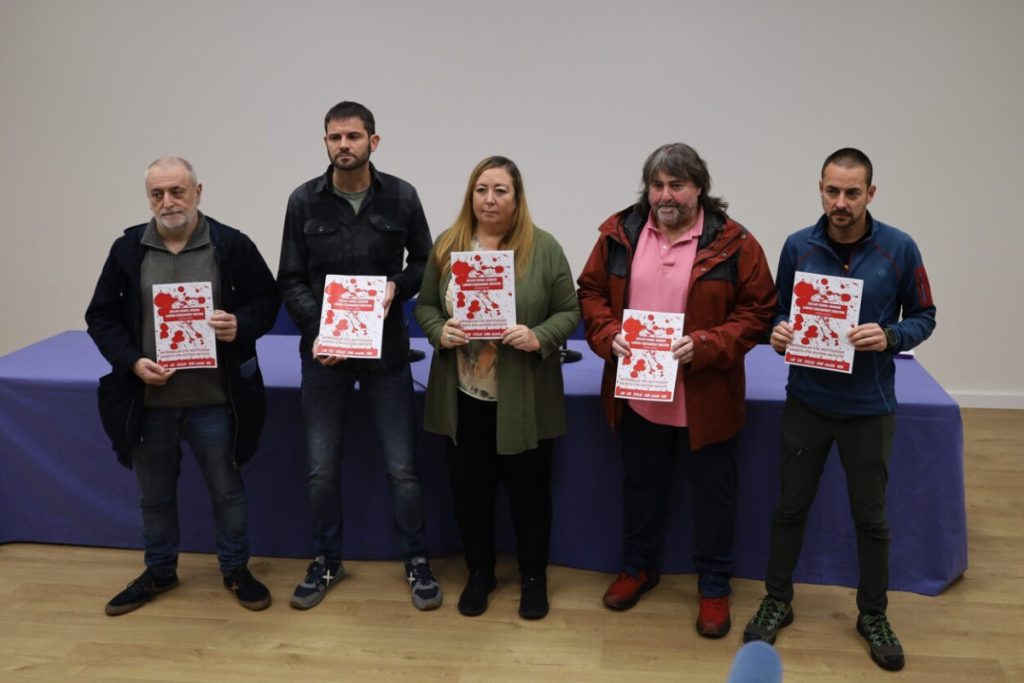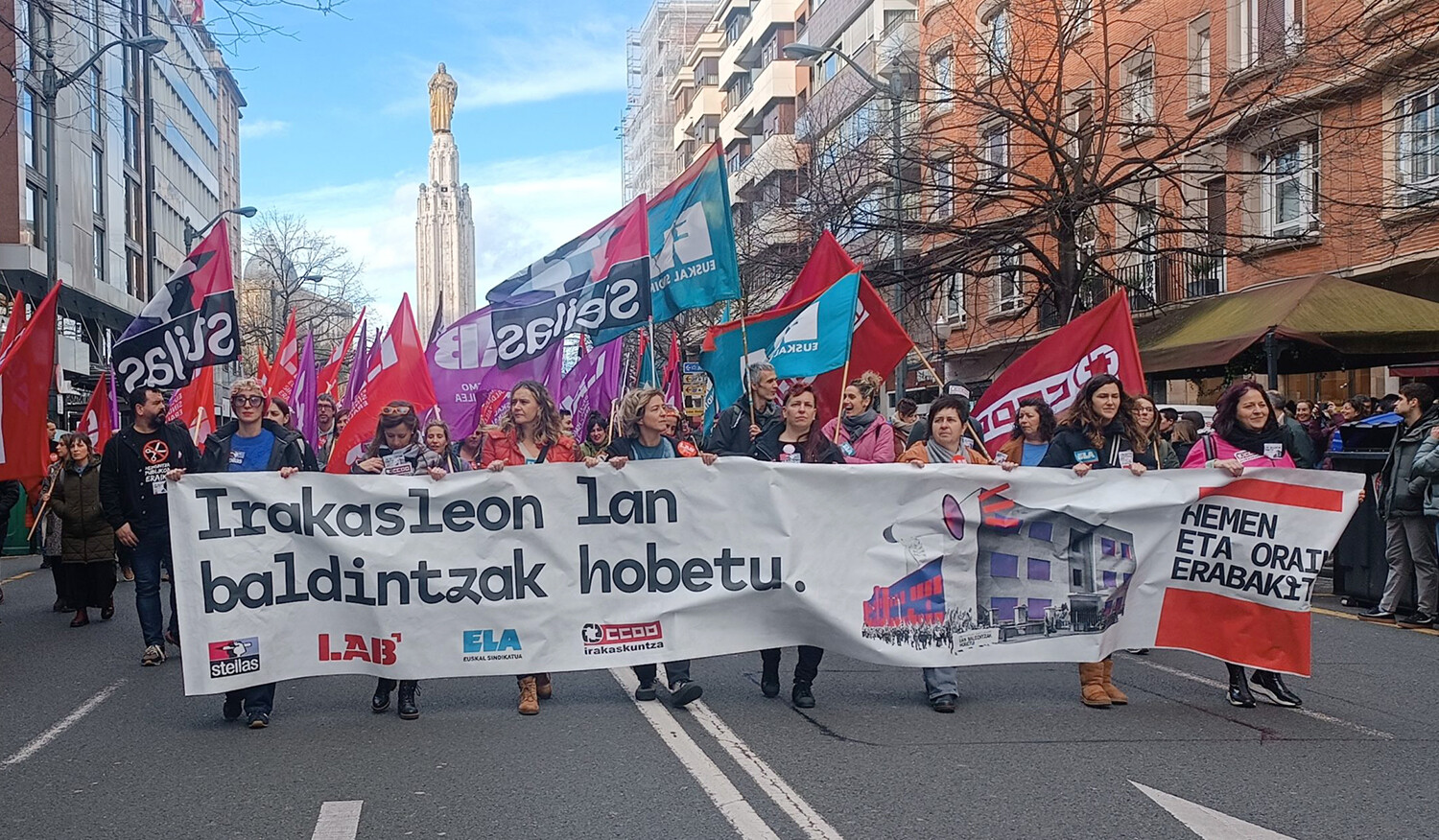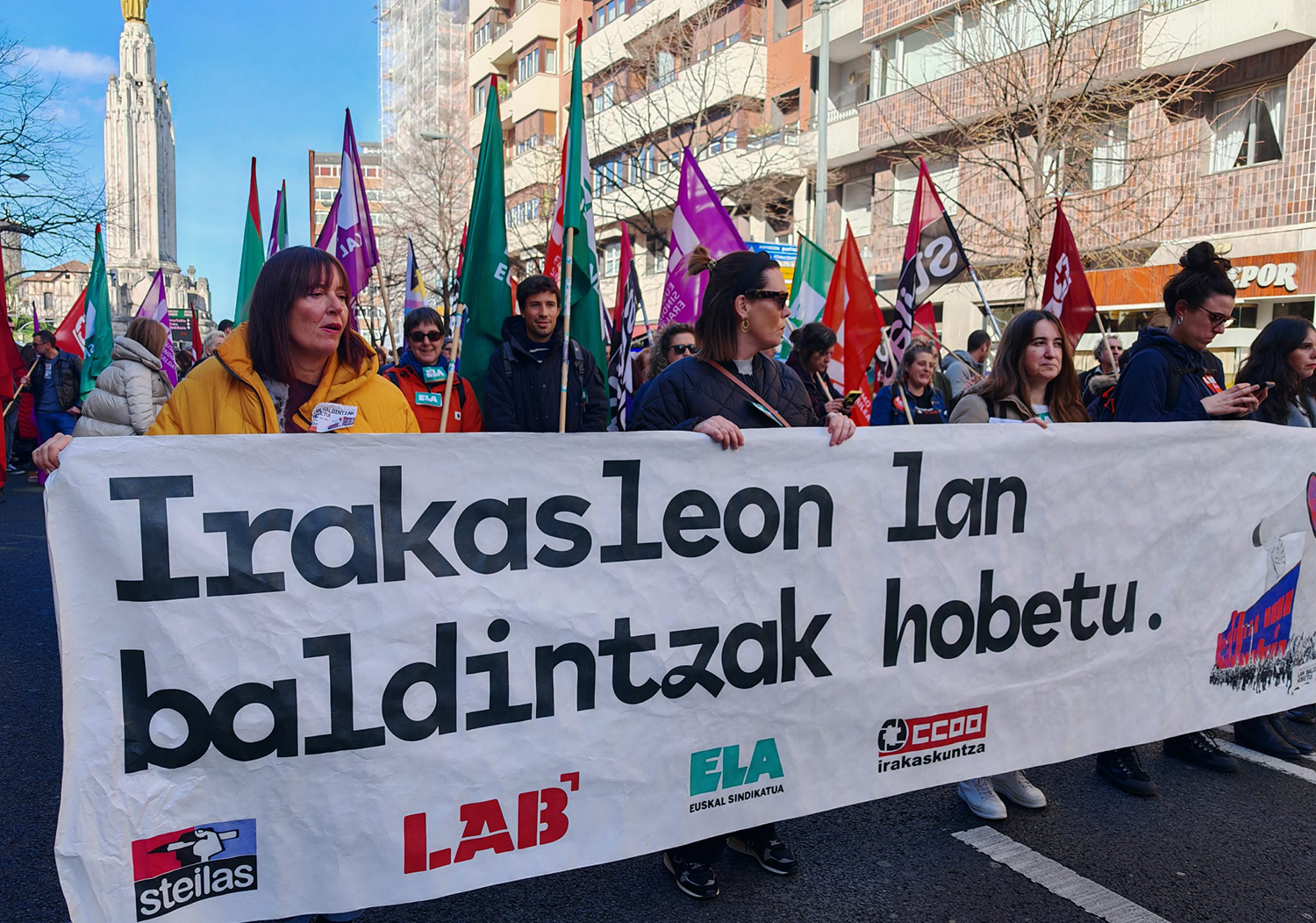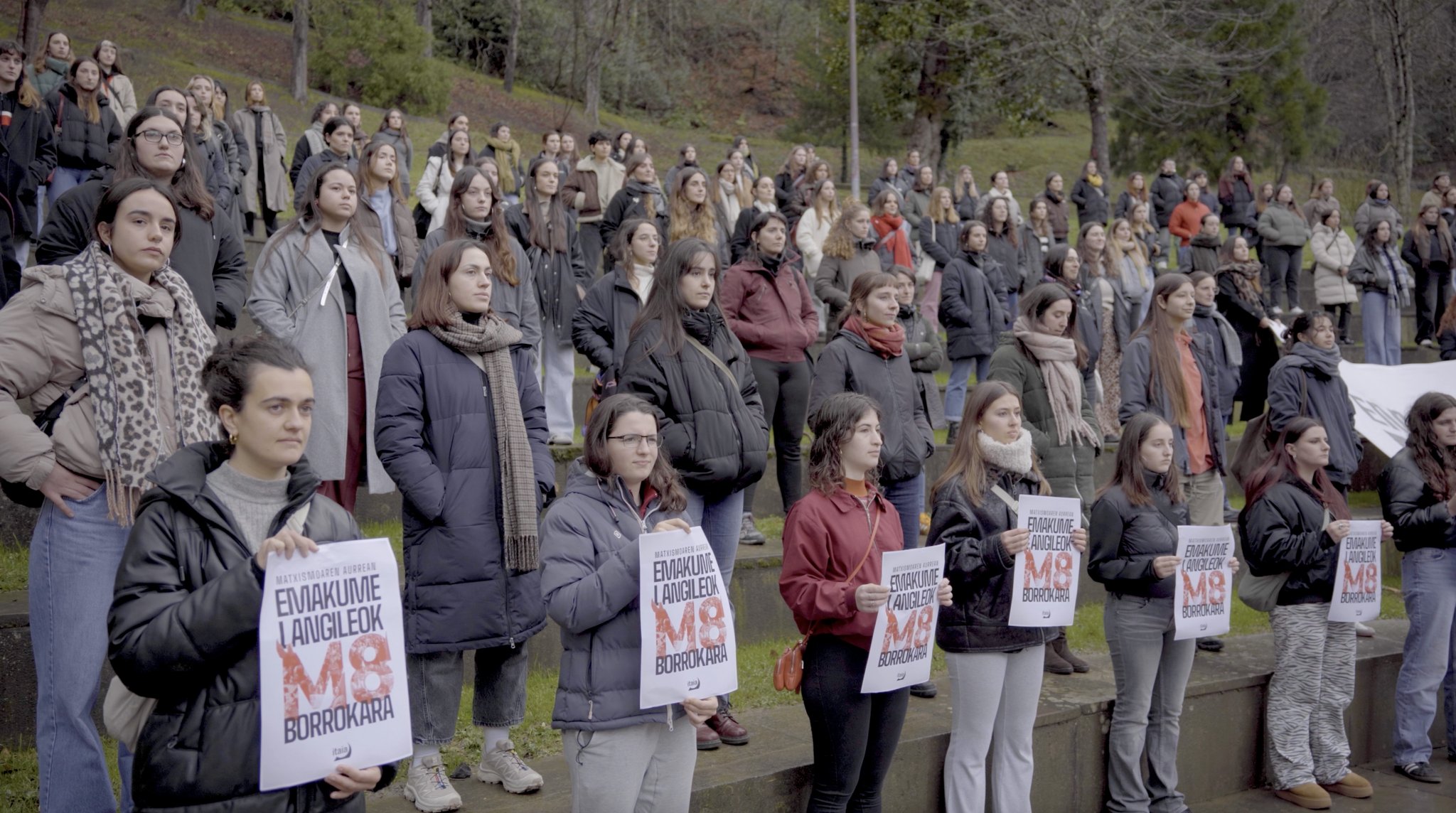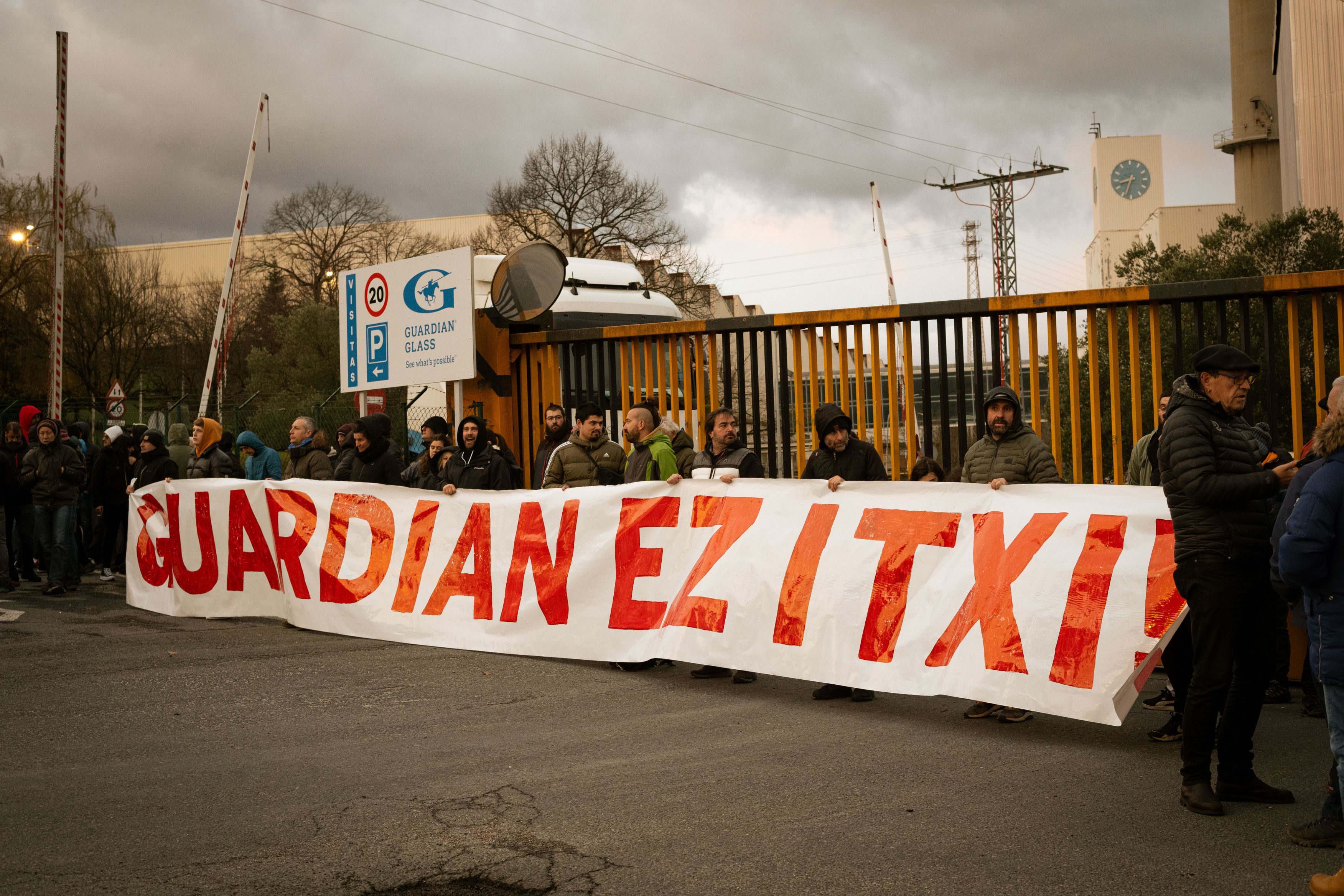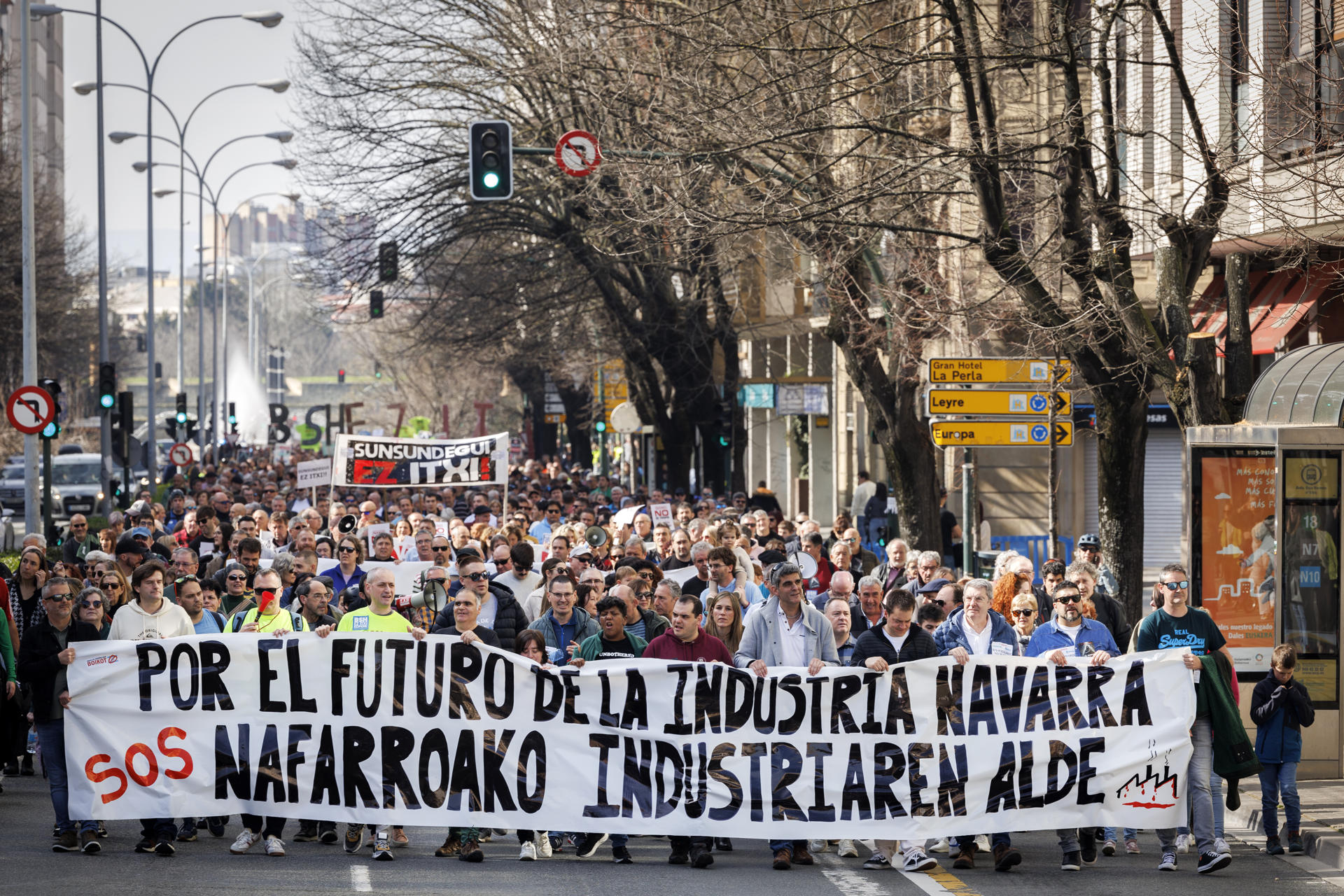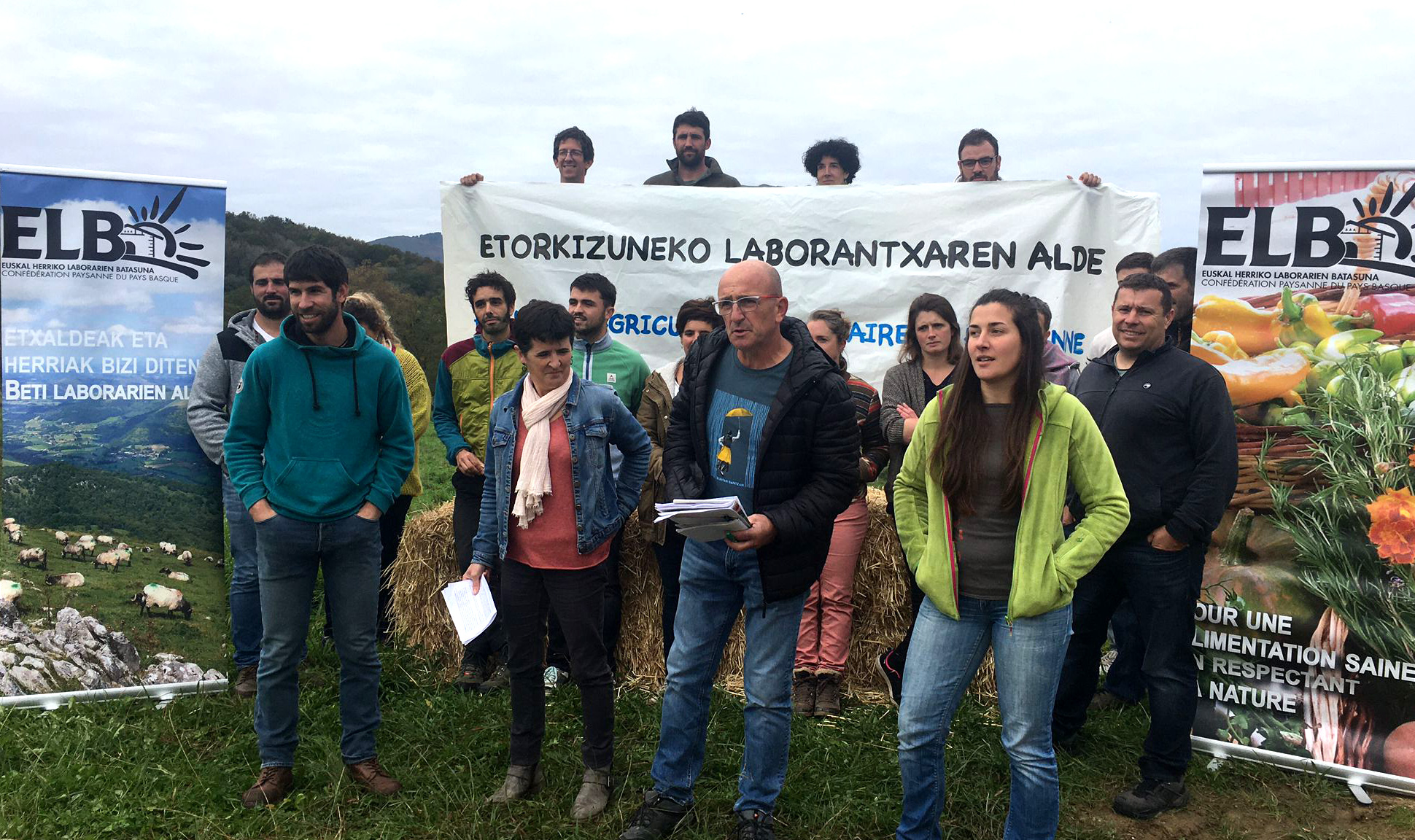
Almost 5,000 workers will vote on Monday on the agreement signed last Tuesday between Mercedes’s management and 55% of the works council’s unions, while 95% of workers continued the strike agreed in very crowded open assemblies.
Emilio Titos, Director of the Mercedes plant in Vitoria-Gasteiz: “Saying “no” to pre-agreement would be the beginning of the end.” Iñigo Urkullu and Arantza Tapia: “The pre-agreement is a compliment”; “We cannot miss the opportunity”. Joint note by the Alavese business union and the Álava Chamber of Commerce to the workers: “Think about the consequences of a lack of agreement.” These and eleven similar statements were made at the headlines of the public and private media throughout the week. UGT and Mercedes tried to neutralize the strikes – while reproaching with Twitter the threats of Titos (! )–, ensuring that ELA, LAB and ESK abandoned the calls, which was refuted by the three unions. Of all of them, class consciousness and organization. Trade unions opposed to the pre-agreement denounce that those responsible are “threatening” workers: “They tell them that only Titos’ agreement with their unions can prevent Mercedes from leaving in eight years. If no, they inform any of them that they are willing to conclude the contract.” The Mercedes Directorate says it will investigate the threats that the personnel who oppose the principle of agreement have allegedly made to their colleagues. Fear of the door of the referendum.
"The messengers of fear suggest that Mercedes can do no more, that it would jeopardize the viability of the company. These salaries represent 6% of overheads in a company with millionaire annual profits."
ELA, LAB and ESK call for "transparency" and denounce that the employers are violating the regulations for the company referendums. That all trade unions have the right to participate in the organization of the referendum, which on three occasions have asked the other trade unions that signed the pre-agreement to speak for it but have not received a reply, and that the company has announced that it will be the company that will organise the questionnaire. That the vote must be secret, but that the company is promoting telematic voting through an application created by it itself. That the company is obliged to pass the workers’ census, but they have not received it (Friday’s note). That each union is entitled to a representative at the polling stations, but that they know nothing about them. Fear that it will not be enough, oxymoron: opaque referendum.
The strikes reject the sixth night the company wanted to impose. The amount of the wage increase is now the central source of conflict. The fear messengers suggest that Mercedes cannot give more, which would be to question the viability of the company. These salaries represent 6% of overheads in a company with a profit of millions per year. Let us get things right: trade unions and workers who do not accept the principle of agreement are not claiming the socialisation of the means of production and the end of capitalism; they are fighting for the new labour agreement to exploit the present but not to exploit more (with great merits, taking into account the context).
"And is Mercedes the one that needs Vitoria, Álava and Euskal Herria?"
The messengers of fear say that if the multinational refuses to pre-agree the multinational would leave and that this would be irreparable damage, that Vitoria, Álava and Euskal Herria need Mercedes yes or yes. I am not an expert in the matter, but how much would it cost Mercedes to transfer it? Building elsewhere a network of companies and skilled workers that have been developed for decades according to their needs? Find public entities that so generously develop tailor-made “public-private partnership”? And is Mercedes the one that needs Vitoria, Álava and Euskal Herria?
In the referendum on Monday Mercedes workers will vote on their working conditions. But the end result of the conflict will also affect the working conditions of many other workers, especially in metal, because Mercedes is a reference. And it will also affect the response to the strategy of fear in the new conflicts that will come.
Fear has always been a major political factor. And to impose submission in a world that is calcining (literally and metaphorically) and in which we live in the most terrible time in the past, power deepens the strategy of terror. In the face of the individualization of fear, its collective organization will be decisive in the coming years. What are the assemblies that have promoted the strike, if not collective tools to shake the fear of mental bodies?
Nahiz eta Nazio Batuen Erakundeak (NBE) 1977an nazioarteko egun bat bezala deklaratu zuen eta haren jatorriaren hipotesi ezberdinak diren, Martxoaren 8aren iturria berez emazte langileen mugimenduari lotua da.
Lan baldintzen "prekarietatea" salatzeko kontzentrazioa egin zuten asteartean egunkariaren egoitzaren aurrean. Abenduaren 2tik sindaura greban daude langileak eta mobizlizazioak "areagotzea" erabaki dute orain.
Langileek salatu dute zuzendaritzak ez diela lan baldintzen gaiari heldu nahi izan eta enpresak nahiago izan duela Gaztea Sariak ekitaldia bertan behera utzi, “horrek sortutako albo-kalte ekonomiko eta sozial guztiekin”, arazoari irtenbidea eman baino.
Mendizale batek asteburuan ikusi du animalia Lapurdiko Azkaine herrian, eta otsoa dela baieztatu du Pirinio Atlantikoetako Prefeturak. ELB lurraldean "harraparien presentziaren kontra" agertu da.
2024ko laneko ezbeharren txostena aurkeztu dute LAB • ESK • STEILAS • EHNE-etxalde eta HIRU sindikatuek aurtengo otsailean. Emaitza larriak bildu dituzte: geroz eta behargin gehiago hiltzen dira haien lanpostuetan.
Jakina da lan ikuskariak falta ditugula geurean. Hala ere, azken egunotan datu argigarriak ematea lortu dute: lan ikuskaritzaren arabera, EAEko enpresen %64ak ez du ordutegien kontrolean legedia betetzen. Era berean, lehendakariordeak gaitzetsi du, absentismoaren eta oinarrizko... [+]
Aiaraldeko hainbat irakaslek mezua igorri diete ikasleen guraso eta familiei, dagoen informazio zurrunbiloan, grebarako arrazoiak modu pertsonalean azaltzeak euren borroka eta lanuztea hobeto ulertzeko balioko dielakoan.
Martxoaren 8a hurbiltzen ari zaigu, eta urtero bezala, instituzioek haien diskurtsoak berdintasun politika eta feminismoz josten dituzte, eta enpresek borroka egun hau “emazteen egunera” murrizten dute, emakumeei bideratutako merkatu estereotipatu oso bati bidea... [+]
Grebaren bezperan Hezkuntza Sailak “edukirik gabeko” mahaia deitu zuela eta sindikatu deitzaileak “errespetatu gabe” akordioa “antzezteko” gutxiengoa duten sindikatuak “erabili” nahi izan zituela salatu ostean, beste bi greba... [+]
Martxoak 8aren izaera iraultzailea berreskuratzeko deia egin du Itaia emakumeen antolakunde sozialistak. Irene Ruiz Itaiako kideak azaldu digunez, “oldarraldi erreakzionarioaren eta matxismoaren aurrean proposamen iraultzailea hauspotu eta kontzientzia sozialista... [+]









